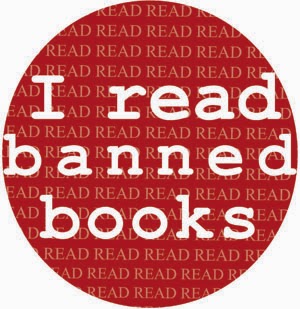Dear Ms. Berner,
In order for students to expand and learn, they must be exposed to the stories and information that challenge them to think deeply and analytically about the world, themselves, and others. It
has come to my attention that parents of some students in the school community are concerned with the impact they believe select pieces of literature are having on their children. These concerned parents are asking the administration to remove books they see as unfit for students to read because of what they understand to be inappropriate content. It would be unwise for you to carry out these parents’ requests, as it is unjust for schools to limit student’s access to select books.
has come to my attention that parents of some students in the school community are concerned with the impact they believe select pieces of literature are having on their children. These concerned parents are asking the administration to remove books they see as unfit for students to read because of what they understand to be inappropriate content. It would be unwise for you to carry out these parents’ requests, as it is unjust for schools to limit student’s access to select books.
The reasons as to which students should not be denied access to books are numerous. For example, books with explicit and controversial content can teach students about difficult situations before they catch themselves in a similar plight as described in a text. Ala.org’s list of the top ten challenged books in 2013 lists many books that were banned because of sexually explicit content. Some of these novels include The Bluest Eye by Toni Morrison, Looking for Alaska by John Green, The Perks of Being a Wallflower, by Stephen Chbosky, and The Absolutely True Diary of a Part-Time Indian, by Sherman Alexie. While these books do include sexual themes and circumstances, they can teach children, specifically teenagers, the effects of what they do in sexual situations and how to navigate sexuality. In The Perks of Being a Wallflower, lessons are taught that range from what masturbation and oral sex really are to consent to sexual abuse. Books that express teenage life with the reality of drugs, sex, and other “inappropriate” subjects remove the mystery and replace it with facts that will prevent children and teenagers from making mistakes in the future. Knowing the negative effects acid had on Charlie in The Perks of Being a Wallflower will protect children from making the same mistakes in the real world, whereas someone who has not been taught the unpleasantness and ramifications of such substances will go blindly forward into addiction. This is a reason why keeping controversial books in schools and libraries can positively impact students.
Many people would say that children and teenagers should be sheltered from books they deem unsavory for their age group, and that these books should be removed from libraries and classrooms. Chelsea Condren writes “Banning books is about individuals who believe they have the right to decide how we think what we see, and especially about individuals who believe they are protecting our children by attempting to bar them from reading certain books.”This belief that parents should be able to restrict certain books for all children is unjust. Young people have different levels of maturity and comfort, as does everyone, no matter their age. This is valid and should be respected. A child who cannot handle a book about murder should not be forced to read a book that includes mention of murder. Some children suffer trauma and could be triggered by content in literature. However, if you ban a book from a school it means that students who can handle such books will be unable to read and grow from them, and that is completely unfair. this is why trigger warnings should be put in place on books. The Oxford Dictionary defines “trigger warning” as “A statement at the start of a piece of writing, video, etc., alerting the reader or viewer to the fact that it contains potentially distressing material (often used to introduce a description of such content)” Trigger warnings offer a way for children and parents to fairly decide what books are appropriate to read. Because everyone is not prepared or mature enough to handle all material, trigger warnings would allow an understanding of the possibly damaging content without forcing the literature out of other kid’s hands.
As has been illustrated, the prohibition of books in schools is unfair and should not be permitted. Perhaps parents who are prompting the administration to remove books should have a conversation with their children about what cooks they can or cannot handle. These parents must ask themselves how their actions affect other students who would learn from challenging books. It is important, not just in regards to this issue but with all things, that we practice empathy for others while still recognizing personal requirements.
Bibliography:
"Frequently Challenged Books of the 21st Century." Frequently Challenged Books of the 21st Century. N.p., n.d. Web. 05 Jan. 2015. <http://www.ala.org/bbooks/frequentlychallengedbooks/top10#2013>.
"Trigger Warning." : Definition of in Oxford Dictionary (American English) (US). N.p., n.d. Web. 07
Jan. 2015. <http://www.oxforddictionaries.com/us/definition/american_english/trigger-warning>.
Condren, Chelsea. "Why Do We Ban Books, Anyway?" The Hub RSS. N.p., 27 Sept. 2013. Web. 07 Jan. 2015. <http://www.yalsa.ala.org/thehub/2013/09/27/what-makes-a-book-ban-

No comments:
Post a Comment